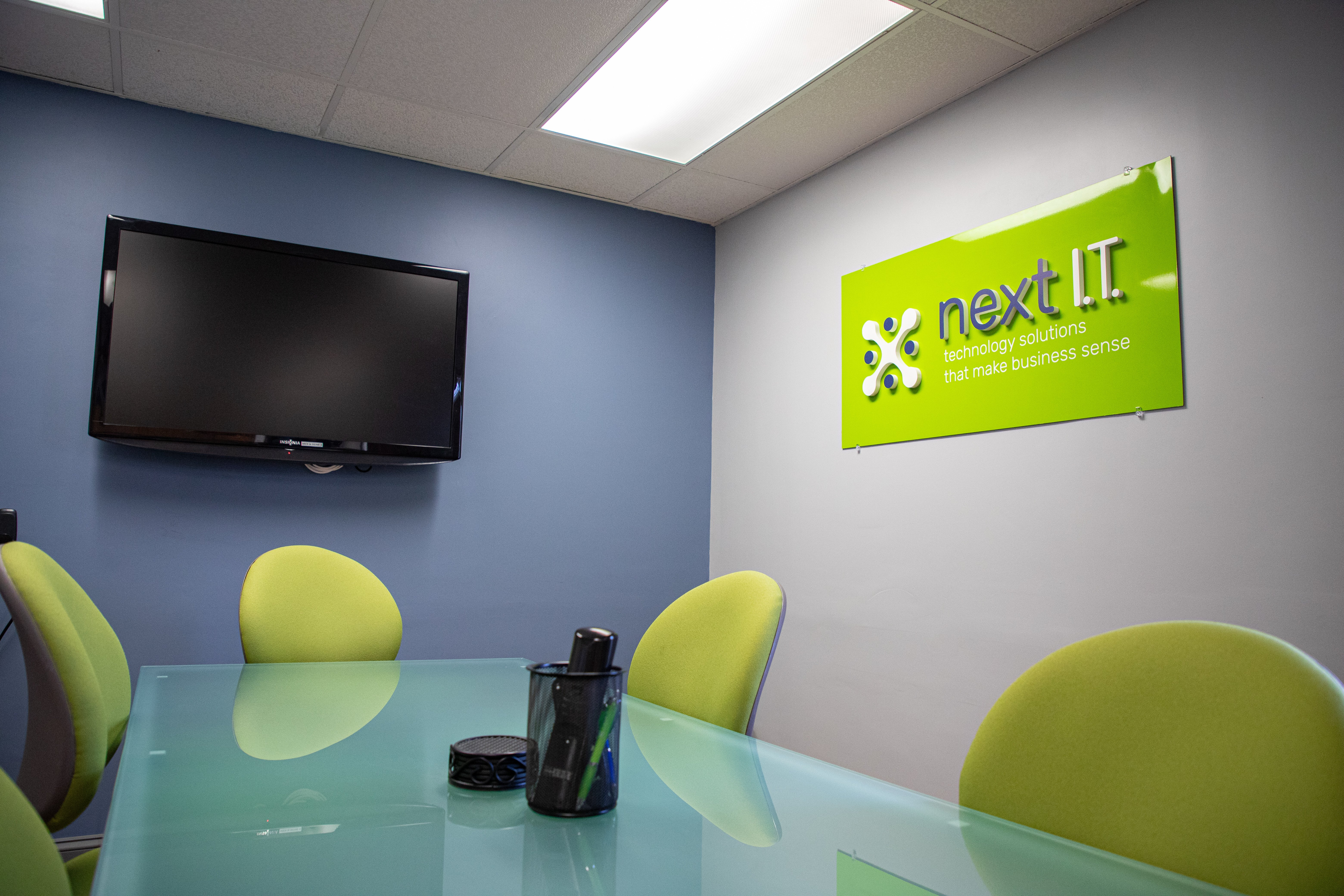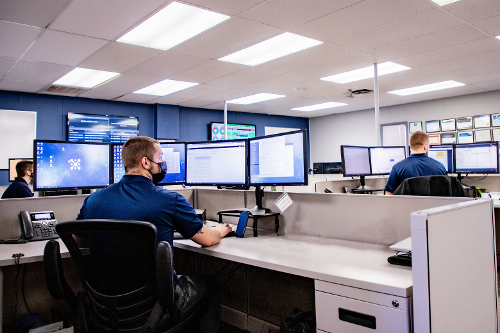As the world becomes increasingly digital and connected, new technologies are taking a center stage in the running of any business. Long gone is the age when an entrepreneur would start a business and succeed without investing in cutting-edge technologies.

The cut-throat competition in every industry and the ever-increasing complexity of IT systems force every business to invest in managed IT services at the earliest opportunity to stay relevant in their market. Today, it is more important than ever for a business to work with a managed IT services provider.
What are Managed IT Services?
Managed IT services, or Managed Service Providers are a business's proactive approach to business technology and infrastructure. Using Managed Service Providers or MSPs, are a way for a business to outsource its IT functions to a specialist third-party provider. The provider is typically a specialist technology company that will take care of all the company's IT needs - from providing cloud services to installing and monitoring computer networks.
For a business, outsourcing IT services to a third party ensures the efficient running of the company without the high costs. It also streamlines IT operations and guarantees security from new threats. MSPs ensure that their business clients' technology is running smoothly and IT infrastructure is at its best around the clock. They serve businesses in all industries and establishments of all sizes - from small startups to multinational enterprises.
Here are the seven types of managed IT services every business must have to stay ahead of the competition.
1. 24/7 Helpdesk and Remote Support
Every business needs a round-the-clock tech support team to help resolve any IT issues they may face at any time of the day. This is one of the most critical components of managed IT services because technical problems that can be costly if not resolved quickly can arise at any time.

A helpdesk is often a team of IT professionals available to provide assistance when needed. These are specialist staff who can help troubleshoot technical and tech problems, answer questions, and provide step-by-step guidance to resolve any problems client employees or customers face.
![]()
Having a 24/7 remote help desk and remote support means that a business can rely on experts to resolve problems quickly and efficiently without the cost of maintaining an IT department on the premises. This service minimizes downtime and ensures the business runs smoothly. It also frees the business to focus on its core functions without worrying about managing IT infrastructure.
2. Cybersecurity
Cyber threats are a major concern for every business today regardless of size, location, or industry. A successful cyber attack can devastate a business in more ways than one. For instance, the business can lose data, trade secrets, or suffer financial losses. The consequences often do not end there; the business can further suffer reputational damage and even be subjected to legal penalties.
The only way to protect a business from cyber attacks is to invest in a robust cybersecurity strategy that guarantees protection from known and new threats. Managed IT services providers can help a business implement a comprehensive cybersecurity plan with multiple layers for improved security.
By delegating cybersecurity to a specialist company, the business can be confident that its digital assets are safe and secure and that the business is protected. Ultimately, a good cybersecurity solution is the surest way to ensure the longevity and success of the business in today's unsafe world.
3. Network Monitoring
Businesses have become increasingly reliant on communication and networking technologies to run. It is more critical now than ever for them to have a reliable and secure IT infrastructure. Network monitoring is a necessary service that involves proactive and continuous tracking and analysis of IT infrastructure, including routers, switches, servers, and other network components.
A business that invests in network monitoring MSP will spend less time and money to ensure its network and systems run smoothly around the clock. This is because they will have specialists with advanced tools working remotely to monitor their networks and systems. It also means that any potential network threats and problems that could impact business operations will be detected and responded to quickly.
The goal of network monitoring is to detect, identify, and address any potential issues that can pose a problem to the network. A business with an MSP handling its network monitoring will have a peace of mind knowing their systems are managed proactively and are guaranteed to perform optimally and securely.
4. Backup & Disaster Recovery
Backup and disaster recovery, or BDR, is an essential IT service that every business that uses technology needs today. BDS is not a one-time service but an ongoing process of backing up a business's critical data and systems to protect them against risks such as data loss, system failures, malicious attacks, or unforeseen disasters.
Disasters can strike at any time, and most of them can have a significant impact on a business's systems, operations, and reputation. Having a solid backup and a recovery plan is essential to ensuring continuity even after the disaster. A backup and disaster recovery plan as a service is insurance to ensure that the business's critical data and systems are secure, accessible, and recoverable in the event of a disaster.
5. IT Consulting
Today's business environment is highly complex and still constantly evolving. New technologies emerge rapidly, and businesses have a hard time keeping up as they depend on them to stay competitive. Forward-looking businesses must understand how new technologies can impact their businesses and identify any areas or gaps in their IT systems that the new technologies can address.
IT consulting is a service that helps businesses ensure that their IT infrastructure is aligned with their business objectives. Provided by specialist IT consultants, the service provides invaluable insights on industry best practices, new trends, innovative technologies, and best practices that the business needs to streamline its operations, cut costs, and boost efficiency.
As a managed IT service, IT consulting helps businesses continuously optimize their security posture and ensure compliance with new regulations. The right MSP provider can assess a business's systems and recommend strategies that improve security and streamline service provision.
6. Vendor Management
Businesses today rely on technology to support and streamline their operations. This often means they have to work with multiple vendors, such as software and hardware providers and other service providers. However, managing the relationship with multiple vendors in different industries is complex and time-consuming and can even be quite costly.
Vendor management is a managed IT service that can help the business manage its relationship with its vendors easily. This service involves identifying, evaluating, and negotiating contracts with vendors as well as overseeing vendor performance and ensuring that they meet their service level agreements.
The single most important benefit of vendor management as a service is that it helps the business streamline its relationship with multiple vendors from a single point. An MSP can help the business reduce vendor management costs by consolidating and standardizing products and services. The contractor can also help the business negotiate better prices and terms with vendors, save money, and improve the business's bottom line.
7. Cloud Solutions
Businesses today must be agile and adaptable to remain competitive in the market. Cloud solutions can help them achieve this by providing flexible and scalable IT infrastructure. These services can help them scale their computing resources up or down easily and quickly as market forces demand without making significant capital investments in hardware, software, or staff.
Cloud solutions are a must-have managed IT service that businesses today can rely on to store, manage, and access their data and applications online. Businesses that invest in the right cloud solutions record improved productivity and collaboration opportunities. As the world drifts towards remote work, cloud solutions are important to mitigating the costs of virtual collaboration and remote work now more than ever.
Moreover, cloud solutions also help a business improve its security and data protection. The right cloud solutions come packaged with security features such as data encryption, backup, and disaster recovery.
Conclusion
In conclusion, managed IT services provide businesses with essential support, allowing them to focus on their core operations. These seven types of managed IT services offer numerous benefits, including increased productivity, reduced downtime, and improved security. To learn more about how managed IT providers can benefit your business, visit Next-I.T. to talk to MSP experts and get personalized advice that will help you know which services your business could benefit from today.
